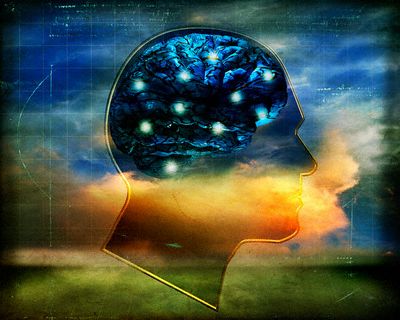The religiobiological stance
 The religiobiological stance is a framework for peering into phenomena that lie at the boundary of religion and biology, or are suspected to. This stance is at the heart of Numenware. The religiobiological stance is an approach which starts with the assumption that there are biological underpinnings to religious experience, and analyzes issues based on that assumption.
The religiobiological stance is a framework for peering into phenomena that lie at the boundary of religion and biology, or are suspected to. This stance is at the heart of Numenware. The religiobiological stance is an approach which starts with the assumption that there are biological underpinnings to religious experience, and analyzes issues based on that assumption.
The analogy with Dennett’s “intentional stance” is, well, intentional. Like the intentional stance, the religiobiological stance is a mechanism designed to break through layers of relationships to see what a particular perspective yields.
Take issues as diverse as glossolalia (speaking in tongues), or the Landmark Forum, both arguably religious in nature. There is no direct evidence tying either to biological processes. So we address them from the religiobiological stance to see what light this casts on them.
Why not call this the “neurotheological stance”? For the same reason that “neurotheology” is a defective coinage. First, we know that the brain is an integral part of the body as a whole, and existing knowledge tells us that more than just the brain is involved in religious experience. So we need to widen the “neuro” to “bio”. Taken alone, this would yield the existing, alternative term “biotheology”.
But this term is also misleading. “Theology” is widely understood to refer to the study of a particular type of God . It is not a term that would generally be used in the context of native religions, for example, or even Buddhism. The more general term is “religion”. At least one etymology of “religion” is return to the divine, an arguably more general concept than “theology”. “Religion” does have overtones of organized religion and dogma and ceremony, but we will stipulate that we interpret this to explicitly include pesonal development and transcendant experience (until someone suggests a better word).
But why “religiobiology” instead of “bioreligion”? The latter, like “neurotheology”, would imply that religion or theology is at the heart of our field of study, that we are looking at a specialized subfield of religion. In other words, we start with theology or religion, then examine its biological aspects. In my view, however, that is backwards: we need to start with biology, and see what religoius phenomena it generates. If the terms were untangled, “bioreligion” would be “religion of biology”, whereas “religiobiology” would be “biology of religion”—which is clearly what we are interested in.
Of course, “neurotheology” is widely entrenched as the name for this field, and that terminology will not disappear. Over time, however, I hope we can shift towards “religiobiology”.
In future posts, I will apply the religiobiological stance to the two particular topics I mentioned, glossolalia and the Landmark Forum.

September 23rd, 2005 at 09:57
I’ll be interested to see your religiobiological take on Landmark Forum.
September 26th, 2005 at 00:54
Well, if what you’re looking for is to be less specific to organised religion and
include pesonal development and transcendant experience
then why not Mysticobiology.
Religions are one of the manifestations of mystical thought, which, in the context of “neurotheology”’s assumption, would rely on similar processes.
Incidentally, I agree totally with your analysis of the term neurotheology, and in fact this is exactly why I don’t trust that field: I can’t help to feel that either the main people in it can’t understand or care about basic rules of how words mean things, in which case I don’t see how they are fit to understand much else in any interesting or rigorous way, or they do, and this word coinage betrays a different agenda than the one you subscribe to.